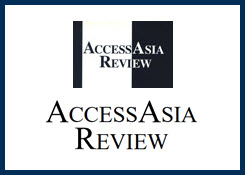From AccessAsia Review Vol. 1, No. 2 (Out of Print)
Democratization in the Greater China Region
In this essay, the author examines the main findings on the causes and progress of democratization in Greater China.
Taiwan, Hong Kong, and Mainland China have each experienced political liberalization under very distinct circumstances and are at different stages in the process of democratization. These differences have tremendous implications for relations among them and for U.S. policy. In the case of Taiwan, the successful transition to democracy was fostered by a fast-growing and outward-looking market economy, an increasingly complex and modern society, and democratic institutional enclaves under authoritarianism (such as local elections). Democratic consolidation there is most noticeable in the constitutional reforms and electoral gains of opposition parties. The democratization of Hong Kong occurred under less auspicious conditions. British concerns about opposition from Beijing constrained the pace of political liberalization in the 1980s. Democratization accelerated after the 1989 Tiananmen Square events and the implementation of electoral reforms under the last British governor, Christopher Patten (1992-97). Local middle-class intellectuals have played the leading role in Hong Kong’s transition toward democracy. Judging from the results of the May 1998 elections to the Legislative Council, Hong Kong’s newly established democratic institutions may continue to endure under Beijing’s rule. The author identifies four areas of political liberalization in Mainland China that are likely to stimulate further democratic reforms: (1) the rapid growth of civic organizations with at least some independence from the state; (2) increased institutional identity and autonomy of the National People’s Congress; (3) progress in legal reform; and (4) direct election of village leaders.


